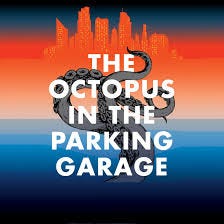Things are changing—and not for the better when it comes to Mother Earth. Most of us have gotten that message—even those who choose to deny it.
For most of us, the more intense storms, the flooding, the wildfires and the heat are all clear signs of a planet in distress. But there doesn’t seem to be a lot we can do about it.
Rob Verchick’s book, The Octopus in the Parking Garage, admits that lots of problems exist and are likely to get worse but there’s another message in Verchick’s book: Let’s not wallow in our funk.
An attorney, college professor and host of his own podcast, Connect the Dots, Verchick provides a call for climate resistance. What he suggests is that you do whatever you can in a small way. First, there’s a ton to be done and doing nothing and worrying about it doesn’t help—either the problem or your anxiety level.
“We need to focus on how we prepare for the change, minimize the damage, and recover from extreme events,” writes John Barry, an author quoted on the Octopus book jacket.
If all this sounds like a lot of work—preparing for change and working out recovery efforts after a mighty storm or wildfire hits, it is. But what Verchick offers is a calm approach to meeting the crisis head on.
"The world we inhabit is getting hotter, drier, wetter, and weirder," he noted. "Our coastlands are sinking. Forests are bursting into flame. Droughts and heat waves are getting worse. On top of this comes another dose of hard reality: As a matter of physics, global warming cannot be reversed very quickly," he stated.
So what's to be done? "Today climate action takes two distinct priorities: curbing greenhouse gases to fend off worst-case consequences and boosting community resilience to cope with the impacts already mounting," he said.
Getting real is what's being called for. "I believe that climate resilience is the gateway discussion toward broader climate action, including eliminating fossil fuels," noted Verchick, who talked about a woman he interviewed in Octopus who seeks to improve worker safety in Nevada, a place where presently there’s no protection for those who work outside, often in 100-degree heat.
While that may not seem like working to offset climate change, it's a start, he said.
Whether it’s the endangered Joshua Tree or the world’s coral reefs that are crumbling under intense heat, Verchick strives to find answers. His system: Learn, Talk, Do.
Learn about the problems. Talk about possible solutions or ways to head off total disaster. Do what you can yourself while pushing legislators and decision-makers to combat the problem.













THE OCTOPUS IN THE PARKING GARAGE